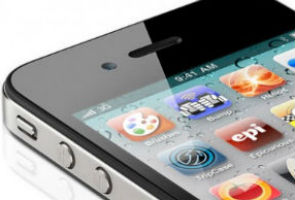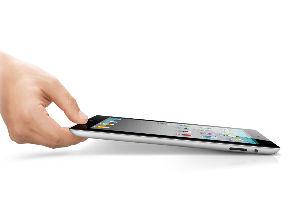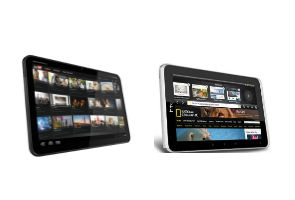
The tablet wars have finally arrived in India with the impeding launches of the HTC Flyer and Motorola Xoom later this month. There are no price specifications or exact launch dates yet.
All this comes after BlackBerry maker RIM announced that it will be bringing the BlackBerry PlayBook to India later this month.
For those who don't know the HTC Flyer, it is a 7-inch tablet powered by Android 2.3 Gingerbread operating system and will come equipped with a Qualcomm 1.5Ghz processor with 1 Gb of RAM. The main USP of the flyer will be its stylus, which aims to provide a unique experience.
In comparison, the Motorola Xoom is a 10.1-inch tablet and it became the first tablet to run Google's tablet optimized operating system Android 3.0 Honeycomb. It will run dual-core 1GHz NVidia Tegra 2 processor along with 1 GB of RAM.
While the HTC Flyer will feature a single 5 megapixel camera, the Motorola Xoom will boast of dual cameras, a 5-megapixel snapper in the rear and a 2 megapixel camera for video chats.
The tablet market suddenly took-off in India with the launch of Apple's all conquering iPad. It will be interesting to see if either of the soon to be launched tablets are able to make inroads in the market.
 The competition is heating up for 'tablets' in India, with Taiwanese handset maker now bringing its 'Flyer' to India in the next few weeks. "HTC Flyer will be launched shortly, in the next couple of weeks," HTC Corporation President (South Asia) Lennard Hoornik said.
The competition is heating up for 'tablets' in India, with Taiwanese handset maker now bringing its 'Flyer' to India in the next few weeks. "HTC Flyer will be launched shortly, in the next couple of weeks," HTC Corporation President (South Asia) Lennard Hoornik said.
HTC Flyer's competitors in India include Samsung's Galaxy Tab, Blackberry Playbook, Motorola Xoom and the Apple iPad. The seven-inch touch screen tablet has a 1.5GHz Qualcomm Snapdragon processor. It has 1GB of RAM and an in-built memory of 16GB and a 5 megapixel camera. Though the company declined to comment on the pricing, it maintained that it would be "competitive with other devices".
Blackberry Playbook is expected to be launched in the country by the end of the month (pricing not announced), while Apple iPad (priced at about Rs 29,500) and Samung's Galaxy Tab (about Rs 26,000) are already available here. The price of the PlayBook in India could range between Rs 22,000 and Rs 32,000, depending upon its storage capacity, from 16 GB to 64 GB. Globally, PlayBook is available at USD 499, USD 599 and USD 699 for the 16GB, 32GB and 64GB versions, respectively.
Since the launch of Apple's iPad, the tablet market is witnessing huge competition, with new contenders launching their devices. Apple's rival in the computing space, Dell had launched the 'Streak' last year in India, while homegrown telecom handset makers like Spice and Olive have also launched similar devices at much lower price points.
According to analysts, sales in the tablet PC segment in India are expected to touch one million units over the next 12 months. With 3G (high-speed internet services) being rolled out aggressively, the opportunity has only expanded, they said.

Facebook had its application for the iPhone ready right when the Apple App Store opened in July 2008. But more than a year after the iPad went on sale, there is still no official Facebook app for it.
That is about to change. People briefed on Facebook's plans say that in coming weeks the company plans to introduce a free iPad application that has been carefully designed and optimized for the tablet.
The app has been in production at Facebook for almost a year, going through several design iterations, and is now in the final stages of testing, according to these people, who declined to be named because they were discussing confidential product plans.
One person who works with Facebook said Mark Zuckerberg, the company's chief executive and founder, has been heavily invested in the process, overseeing design decisions and the app's unique features.
People who have seen the application said it has a slick design that has been tailored for the iPad and its touchscreen interface. Facebook developers and designers have also overhauled the Facebook Chat and Facebook Groups features for the application. And the app will go beyond the features available on the Facebook Web site by allowing users to shoot and upload photos and videos directly from the iPad's built-in cameras.
"The photo and video experience is amazing, offering full resolution and full-screen images," said a person who has seen the app.
Jaime Schopflin, a communications manager at Facebook, declined to discuss any future products. "We have a great relationship with Apple that is exemplified by our iPhone application, but with regards to an iPad application we have nothing to announce now, and cannot comment on future Facebook products," she said. Apple declined to comment.
Facebook's users have complained in the past that its Web interface is not optimized for the iPad or any other touchscreen experience. In response, a number of outside developers have introduced Facebook-friendly applications for the iPad, including My Pad, iFace and Friendly
The new app could be a boon to both Facebook and Apple. Mobile applications and optimized mobile Web sites have been a major area of growth for Facebook, with the company saying that there are now more than 250 million Facebook users actively accessing the service on a mobile device. Facebook is approaching 700 million users worldwide.
A compelling Facebook application for the iPad could help Apple woo customers who are torn between buying an iPad and a competing Google Android tablet. Apple has sold more than 25 million iPads since the device was introduced last year.
Apple also plans to help Facebook promote the new application by featuring it prominently in the App Store, said a person familiar with the plans for the app.
In addition to the iPad app, Facebook also plans to introduce a better version of its Web site for the iPad. It is unclear when this will be unveiled, but it is not intended to compete with a Facebook iPad or iPhone application, and instead is meant, "to supplement these experiences," this person said.
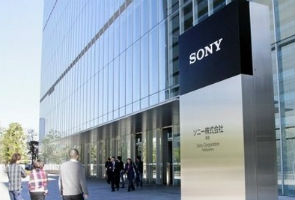 ony has released an app making its Music Unlimited online streaming available on smartphones running Google's Android system, amid growing competition from Amazon and Apple in cloud-based services.
ony has released an app making its Music Unlimited online streaming available on smartphones running Google's Android system, amid growing competition from Amazon and Apple in cloud-based services.
Sony's digital cloud-based music service, which launched in December and is available in Europe, the United States, Australia and New Zealand, allows users to stream millions of songs to Sony devices but previously lacked mobile access.
Sony last week said it would restore all Qriocity online music and video distribution services everywhere except Japan after shutting it and the PlayStation Network down in April after hackers compromised personal data from 100 million accounts.
The launch of the new app will make the service available on smartphones running Android as well as devices such as the PlayStation3, Internet-connected Sony televisions and Blu-ray players.
The app will be available to users in the United States, France, Germany, Ireland, Italy, Spain, Britain, Australia and New Zealand.
The service allows users to stream music content from a catalogue of more than seven milllion songs licensed from labels such as Universal Music Group, Sony Music Entertainment, Warner Music Group, EMI Music and independent labels.
Monthly subscription fees start at $3.99.
Earlier this month Apple unveiled its iCloud service that stores music, photos and other content on the Web and shares it across multiple devices.
Online retailer Amazon unveiled its own Cloud Drive and Cloud Player services in March, which allows users to store their digital music online and play it on a computer or an Android device.
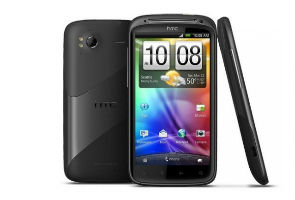 Taiwan based HTC has launched their latest flagship smartphone the Sensation in India today.
Taiwan based HTC has launched their latest flagship smartphone the Sensation in India today.
The device will incorporate trademark HTC design elements such as an Uni-Body design, and will boast of a large 4.3" qHD display with a resolution of 960x540. It will be powered by Google's Android 2.3 OS and will have the latest iteration of HTC's Sense UI.
The device will come armed with a Dual-Core Qualcomm Snapdragon processor clocked at 1.2Ghz and 768Mb of RAM. This processor is the first of its kind because of its asymmetrical processing making the HTC Sensation the first asymmetrical dual core processor powered device in the country.
Apart from this the device will come with an 8-megapixel camera with 1080p recording and playback abilities at 30 frames per second. The new camera will boast of a new instant capture feature.
The new HTC Sense 3.0 UI will feature a new lock screen, 3D swiping between widgets and will have a redesigned weather widget, which will have improved animations.
Previously HTC launched the HTC Desire, which became the first 1Ghz device in the country and more recently they launched the Incredible S and the Salsa which became the first HTC device focused on social networking.
The Sensation is available in the market at a MRP of Rs 32,700.
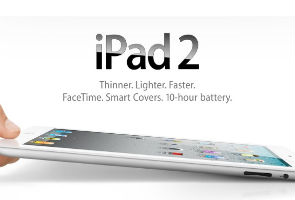
A court in south China has jailed three people for stealing the design to Apple's iPad2 tablet computer and using it to manufacture counterfeits, state press said Wednesday.
The theft from a plant run by Foxconn, a contract electronics manufacturer, in Guangdong province late last year resulted in fake iPad2s being sold in China before Apple's official launch of the product, the Guangzhou Daily said.
Rampant piracy of everything from consumer electronics to luxury handbags and apparel have caused friction between China and its trade partners, leading to billions of dollars in losses annually to intellectual property theft.
A court in Shenzhen city last week sentenced Xiao Chengsong, the legal agent of Maita Electronics, to 18 months in prison and fined him 150,000 yuan ($23,000) for buying the design from two Foxconn workers, the report said.
Xiao allegedly paid 200,000 yuan for the iPad2 design, it said.
Foxconn employee Lin Kecheng, was sentenced to 14 months and fined 100,000 yuan, while another worker identified as Hou Pengna was given a two-year sentence suspended for one year and fined 30,000 yuan, it said.
All three were convicted of the crime of violating commercial secrets, it said.
The iPad2 was officially launched in China, the world's biggest Internet market, in May.
In 2010, Apple's iPad, the first generation of the tablet computer, was also pirated before its official launch in China and sold as the "iPed" for only a fraction of the cost of the real product.
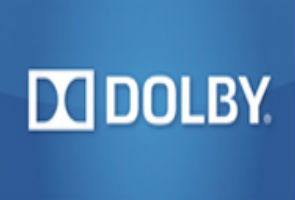 Dolby Laboratories said Wednesday it has filed patent infringement lawsuits against Research In Motion in the United States and Germany and is seeking to halt sales of devices made by the Blackberry maker.
Dolby Laboratories said Wednesday it has filed patent infringement lawsuits against Research In Motion in the United States and Germany and is seeking to halt sales of devices made by the Blackberry maker.
"Litigation was regrettably our last resort after RIM declined to pay for the use of Dolby's technology," Dolby general counsel Andy Sherman said in a statement. "We have a duty to protect our intellectual property."
Dolby said the lawsuits concern Dolby patents covering digital audio compression technologies.
RIM is using Dolby's patented technologies in its Blackberry smartphone and Playbook tablet computer without having obtained licenses, Dolby said.
Dolby said all of the other major smartphone makers have agreed to license the Dolby technologies.
Dolby said it is seeking financial damages and injunctions to halt sales of "the many RIM products" that infringe Dolby's patents.
Dolby said the technologies in question allow smartphones, portable music players, and tablet computers to play back music and other digitized audio that has been compressed to less than 10 percent of its original digital file size.
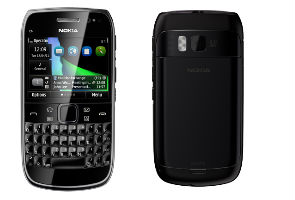
Nokia has announced today that consumers can pre-order the next addition to its touch and type series Symbian phones, the Nokia E6. After pre-booking, consumers will need to deposit Rs. 2000 at their nearest Nokia Priority Store to secure their device. The device will be available on store shelves from July 15 2011.
The E6, which retails for 345 pounds in UK, was expected to launch in India for about Rs. 25,000. It will now be available at the much lower price of Rs. 17,999 which can also be paid via three-monthly installments offered by Nokia.
The Nokia E6 features some impressive specifications. To begin with, it runs on Symbian Anna, which is an upgrade to the S60 version 3. The device also features a 2.46-inch touchscreen display with a resolution of 640x480 pixels. It has an 8MP camera with dual LED flash along with the ability to capture video in 720p HD, 265MB of RAM, 1GB of ROM, 8GB of internal storage, QWERTY keypad and a 1,500-mAh battery that is expected to deliver up to 14 hours of talk time.
Buy the Nokia E6 if you are in the market for a sub Rs. 20,000 phone. If you aren't a Nokia fan, take a look at Android smartphones such as the HTC Wildfire S, Motorola Defy or the Samsung Nexus S.
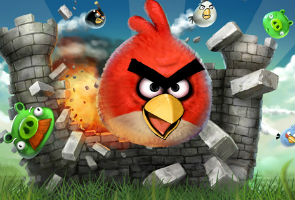
Humour, online hits and social good blended at the Webby Awards -- the Internet industry'sversion of Hollywood's Oscars.
Addictive game "Angry Birds" along with the inventor of the mobile phone were among those honoured late Monday at a ceremony known for testing winners' creativity by limiting acceptance speeches to five words.
"Sometimes, geeks can be chic," Vogue magazine editor-in-chief Anna Wintour said after actor Daniel Radcliffe of "Harry Potter" film fame presented her with a Webby for best fashion website.
IBM computer "Watson," renowned for beating top human players on television trivia game show "Jeopardy!," was named "person of the year" at the 15th annual Webby Awards.
"Person of the year, ironic," a computerized voice speaking for the machine said while receiving a Webby from show host actress Lisa Kudrow, who suggested the machine jazz up its image by dating an iPad.
"That was clever," Kudrow retorted. "You're quite the word processor."
At more serious moments, awards paid tribute to Egyptian protesters who used Twitter and Facebook in a bold uprising to oust Egyptian president Hosni Mubarak and anUshahidi service launched to map violence that followed a 2008 election in Kenya.
"Injustice, oppression, social media equals revolution," Egyptian filmmaker Mohamed Diab said in accepting a Webby dedicated to his people.
Chris Anderson, curator of prestigious TED gatherings devoted to making the world a better place, presented a Webby to a Kenya-born Ushahidi.com platform for using the Internet to share stories in brutal situations.
"Our voices revolutionize the world," said Ushahidi co-founder David Kobia.
Bargain-finding service Groupon won a Webby for "Breakout of the Year," and explained the company's name was short for "group" and "coupon."
Playful snippets from Webby winners included "I never touched the maid" and "Wait, there's no cash prize?"
Pandora radiowelcomed its Webby with "Better than an IPO, almost."
The California-based Internet radio service has filed plans with US regulators for an initial public offering of stock.
Kudrow jokingly likened the rapid fire, terse nature of the ceremony to the Chatroulette website known for randomly pairing people for video chats.
"It's like Chatroulette, but no one shows their penis," Kudrow quipped, referring to Congressman Anthony Weiner's online escapades. "This isn't Congress."
The show streamed live online at YouTube and Facebook finished with a Webby presented to Rovio for globally popular mobile game "Angry Birds."
Rovio chief executive Peter Vesterbacka cavorted in dressed like one of the green pigs whose egg-stealing makes them targets for birds in the game.
"Stay angry, get those pigs," Vesterbacka said, only to be pelted with plush toy birds by the audience.
The Angry Birds iPhone application from Finland's Rovio was named best mobile game.
Angry Birds was also named the winner of the People's Voice award determined in an online vote.
Other Webby winners included teen pop star Justin Bieber, in a comedy category, Arcade Fire for "The Wilderness Downtown" video and The New York Times, which picked up awards in the how-to, travel and mobile categories.
Comedy website Funny or Die scooped up eight awards. Actor Zach Galifianakis was among thewinners for his mock talk show "Between Two Ferns."
Former "Friends" star Kudrow picked up a Webby for "Web Therapy."
Social news iPad application Flipboard won awards in the news and social categories and check-in application Foursquare was tapped for best use of GPS and location technology.
The advertising agency Wieden + Kennedy scored a Webby for its popular video campaign starring Isaiah Mustafa as the "Old Spice Guy" and was also named Agency of the Year.
The Webby Awards honor excellence in website design, interactive advertising, film and video, mobile and applications in various categories.
The awards are bestowed by the New York-based International Academy of Digital Arts and Sciences.
People's Voice winners are selected by online voting at webby.aol.com and Webby Awards by judges including cooking guru Martha Stewart, Twitter co-founder Biz Stone and Arianna Huffington, founder of The Huffington Post.
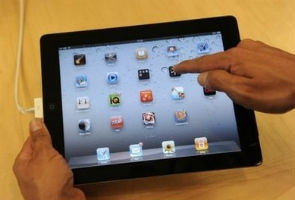
The world's leading mobile phone maker Nokia said Tuesday its competitor Apple had agreed to pay royalties for using Nokia technology in its devices, ending all of their ongoing patent disputes.
"The financial structure of the agreement consists of a one-time payment payable by Apple and on-going royalties to be paid by Apple to Nokia for the term of the agreement," Nokia said in a statement.
The Finnish mobile phone giant said details of the contract were confidential.
In a brief statement, Apple said "Apple and Nokia have agreed to drop all of our current lawsuits and enter into a license covering some of each others' patents, but not the majority of the innovations that make the iPhone unique.
"We're glad to put this behind us and get back to focusing on our respective businesses," Apple said.
The deal constitutes a massive victory for Nokia and brings to an end years of tit-for-tat suits that have seen Nokia file 46 complaints against Apple, which has hit back with numerous countersuits against the Finnish company.
Nokia said both companies had now agreed to withdraw all complaints they had filed with the US International Trade Commission.
"We are very pleased to have Apple join the growing number of Nokia licensees... This settlement demonstrates Nokia's industry leading patent portfolio," Nokia chief executive Stephen Elop said in the statement.
The Finnish company, which has been struggling to maintain its position as global market leader, also said the deal should have "a positive financial impact" on its second-quarter performance.
Just two weeks ago, Nokia warned that its sales for the quarter would be far worse than previously expected and that it could no longer give a full-year forecast, news which sent its share price to its lowest level since early 1998.
Nordea Bank analyst Sami Sarkamies said the one-time payment by Apple will have a powerful impact on Nokia's second quarter, and that the California tech giant would become one of Nokia's most significant patent clients.
"I believe that with the one-time payment we're talking about hundreds of millions of euros, because Apple hasn't paid anything for any of its iPhones that it's sold (with Nokia technology)," Sarkamies told AFP, adding however that future royalty payments would surely be smaller and less visible in quarterly results.
Sarkamies said he was sure the deal also included concessions to Apple for use of its non-essential patents, such as touchscreen technology, but that these payments were likely considerably smaller than what Apple would have to pay to use Nokia's essential patents.
Ending the disputes, which the companies had been fighting simultaneously in US and European courts, should boost morale at Nokia, which is struggling to reverse plummeting market share at the hands of Chinese manufacturers and smartphone rivals Apple and Google.
In February, Elop announced a radical last-ditch effort to turn around the ailing industry giant by phasing out its own smartphone platforms in favour of a partnership with Microsoft's operating system.
This was accompanied by complete corporate re-structuring, thousands of job cuts globally, and multiple credit rating downgrades.
"This is the first good news for Nokia in a very, very long time," Sarkamies said, adding that the agreement should also strengthen Nokia's position in patent rows with other companies in an industry he described as "a tangle of patent conflicts."
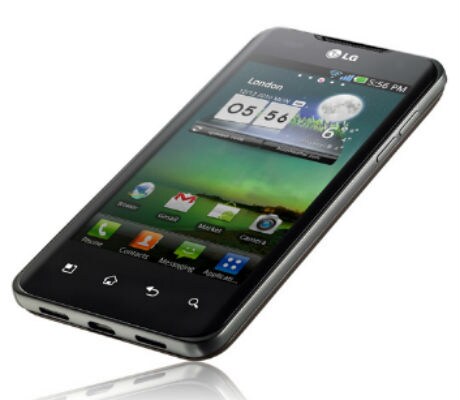
Introduction
When a phone makes the Guinness Book of World Records, people are bound to sit up and take notice. The LG Optimus 2x holds the record for the world's first dual core smart phone. It's also the first twin core powered device to arrive on Indian shores. Powered by the NVidia Tegra 2 the Optimus 2x boasts of a formidable feature set. Naturally, expectations are sky high. Does it live up?
Packaging and Content
LG has really stepped up their packaging and the device is very neatly presented. It includes an USB based wall charger, which also doubles as the USB cable. It also includes a nice case made of felt-like material that cleans the device as it is taken out of the case.
Hardware and Styling
At 139 grams and 10.9mm, the LG Optimus is not the most slender smartphone on the market, when compared to lightweights such as the Sony Ericsson Arc and the Samsung Galaxy S II. But in no way is it a large device like the HTC Desire HD.
The build quality of device feels very premium with its construction predominated by high quality plastics.
The back of the device houses the 1500mAh battery and the 8-megapixel-image sensor. The back is covered with a rubberized plastic which gives the device a premium feel.
The front of the device welcomes the user with a glossy 4.1 -inch IPS screen (800x480) with four touch based Android keys.
The top of the device holds the HDMI port, which is covered with a neat flip-out mechanism. On the bottom end of the device is placed the USB port, which also doubles as a charging port.
On the whole, the build quality of the device is first class and matches the iPhone top to toe, but design wise it feels quite mundane and boring. It feels somewhat like a large shiny brick but is pretty comfortable to hold.
Interface
The Optimus 2x is powered by Android, just like its sibling the Optimus, but unfortunately it is running the dated 2.2 Froyo build. LG also opted to jazz up things with their custom UI which, in our opinion, does not add very much besides visual pizazz. The interface is laced with a neat looking weather widget, a calendar widget and the icons are redesigned.
We have noticed a disturbing trend in the field of Android skinning, as most manufacturers opt to redesign Android in the mold of the iOS, in an attempt to mimic the icons found on the iPhone. LG is no different and the icons look very much like those found on the iOS.
The main problem with the LG UI is that in its attempt to spruce up things it ends up as a major resource hog, making the interface slow. While swiping between the home screens we faced constant lags and the Optimus 2x did not feel like a dual-core processor powered device. Undoubtedly the UI is to blame, as the US variant, which ships without the LG UI, has received accolades for its speed.
Multimedia
The Optimus 2x is billed as a multimedia beast and luckily, in-spite of the laggy UI, it performs splendidly.
It comes loaded with a host of features such as 8-megapixel camera with 1080p video recording capabilities, an extremely vibrant 4.1inch display, Dolby audio support, 8GB of internal memory and a HDMI port.
In our testing, the camera shot sharp images but the flash had a tendency to overcook the images. In comparison to the Sony Ericsson Xperia Arc, the images contained many artifacts and a lot of noise.
As far as the 1080p recording went, the device performed decently and for the most part matched up to the Xperia Arc camera, which shot at 720p. But under low light situations, the Xperia's Exmor-R technology showed its worth and though the videos of the Optimus 2x were of a higher resolution, the color saturation and overall stability of the videos were better on the Xperia Arc.
As far as audio went the built in audio player blasted tunes enhanced by the Dolby technology.
The in-built Android player also came with equalizer settings, which is an enhancement over the stock Android audio experience. For once, the LG enhancements worked in favor of the device. There was no noticeable difference in the sound quality with the bundled headphones, but the moment we engaged our Bose puppies the channel shifts were apparent.
Even the loudspeakers were pretty loud and clear - coupled with two speakers, it gave a neat stereophonic effect to the sound.
LG has also bumped up the screen for the Optimus 2x, which provides an enhanced contrast ratio and is very bright. Interestingly LG manufactures the 'Retina Display' for Apple but have not managed to catch up on the pixel density battle. The iPhone is still sharper and has slightly better contrast ratios, but all that happens in a smaller 3.5inch display.
LG recently announced the Optimus Black which has their latest 'NOVA Display' but for some odd reason they did not include it in their current flagship device.
The device is DLNA enabled, which meant we could stream our content to DLNA, powered HDTVs. This trend is catching on and the incoming Samsung Galaxy S 2 will also feature similar functionality.
HDMI mirroring was seamless and we could play games easily.
PC Sync and Market
As with all Android Phones, PC sync is quite painless thanks to Google's clever cloud computing strategy. All that one has to do is insert one's sim card in the Optimus 2x and sync it with one's Google account. Even the built in social networking app syncs all Twitter, Facebook and MySpace feeds but unfortunately we don't get a social aggregator which would integrate phone contacts, email and social networks all in one.
The onboard email application does a brilliant job of syncing email although this is true of all Android devices.
We also get dedicated Facebook, Twitter and MySpace apps for the Optimus 2x. However, these are not very different from the standard Android apps.
Essential Apps
Unlike the Vanilla Android experience found on the Samsung Nexus S, the LG Optimus 2x is loaded to the teeth. The sheer number of apps borders on bloat-ware.
LG has graciously included a Car Mode, which offers a 'Windows phone' like tile interface providing quick access to all major functions of the device such as phone, messaging, email and handsfree mode. This is a neat touch as many people use their devices while driving (we advise against this!) and touch screens are notorious for being difficult to use with a single hand. The large screen provides quick access to all functions. We have seen this feature before in the Google Nexus devices and, ideally, it's meant to be used in conjunction with a car dock but we are guessing many people are going to use it anyway.
LG has included the F-secure antivirus and it's a pretty good thing to have as the Android malware situation is slowly exploding into a Windows like situation. One should note that the anti-virus is a massive resource hog while it scans.
Besides Android Market, LG has provided its own app Advisor which basically helps users in selecting applications. But in no way does this app offer different content from the Android market.
Polaris Office provides brilliant document editing capabilities and it also doubles as a file manager. It handles all the Microsoft Office formats easily.
The Video player supports various video codecs such as DivX, XviD, and Mpeg-4. But unfortunately some .Avi files don't work properly. The mirror app facilitates HDMI mirroring.
Performance
The hype around the Optimus 2x mainly involves its lightning fast NVidia Tegra 2 processor. But all is not good as currently most of the software available on Android Market is not optimized for the dual core processor.
In daily use, the Sony Ericsson Xperia Arc felt snappier in comparison to the Optimus 2x. The much heralded dual-core 2x performance was mysteriously missing. This is not to say the phone was slow - in-fact it was quite fast: just not twice as fast as a single core Android phone and in the case of the Xperia Arc it was struggling to keep up.
In the Quadrant test the device scored a blistering 2479 which eclipsed the Xperia Arc's score by more than 1000 points. More interestingly, in comparison to the Acer Iconia Tab it scored poorly as the Iconia smashed the Optimus 2x by more than an 1100 points. Currently all these benchmarks are subjective as they are not optimized for dual core processors.
In the Linpack test, the device scored in 35.73 MFLOPs in 1.3 seconds which was pretty impressive considering the next best Xperia Arc scored 37.93 MFLOPs in 2.21 seconds.
In the BrowserMark test, the Optimus 2x disappointed as it only managed to score 42436 while the Sony Ericsson Xperia Arc was not far behind at 41076.
In the Benchmark Pi test, the device calculated Pi in 700 milliseconds which beat the Xperia Arc by a good 400 milliseconds.
Overall call quality was extremely impressive. Calls were loud and clear. Battery life was, sadly, fairly average as the phone struggled to last a day. Our usage involved constant Wi-Fi use, a few calls; web browsing, and a bit of the Wi-Fi hotspot functionality. We can hope for a Gingerbread upgrade, which might elevate the performance and battery issues.
Verdict
Lets be clear, it's not the Formula 1 car everyone thought it would be. Having said that, it's still one of the fastest smart-phones currently available. It also is running an older build of Android with a laggy LG UI running over it, which is not a good thing. Aside from that there is not much to complain about, as it is quite reasonably priced.
In a nutshell the Optimus 2x is a jack of all trades but master of none. So if you are looking for a phone which can do it all, then this is the one, but you are looking for some extra oomph then we say hold out for the Samsung Galaxy S 2.
Pros:
Fabulous Build Quality
Reasonably Priced
Feature Set
Cons:
Underwhelming Performance
Android 2.2 Froyo
LG UI
Spartan Design
Average Battery Life
Ratings
Performance: 3.5
Price: 4
Ease of Setup: 4
Ergonomics: 3.5
Wow Factor: 3
Good news for iPhone fans Stateside. Apple has announced that it will now start selling an unlocked version of its coveted iPhone 4 in the USA.
Previously, the iPhone 4 was available only through the AT&T and Verizon networks and users could not use sim-cards from other networks.
In fact, Verizon only recently became an official iPhone carrier - in January this year. Before this,for a large part of the iPhone's lifecycle, it was available only on the AT&T network which was heavily criticized for its poor signal quality.
Now, users will be able to purchase an iPhone without being locked into a carrier contract.
The unlocked version of the iPhone 4 will be available for $649 for the 16Gb version and $ 749 for the 32Gb version. It will be available in both black and white colours.
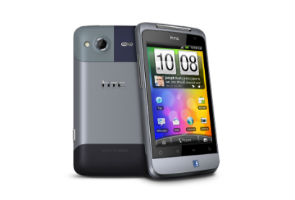
HTC has launched the HTC Salsa, it's "Facebook phone" in India.
The Salsa will be powered by Google's Android 2.3 operating system and will feature HTC's Android skin HTC Sense.
With its emphasis on easy social connectivity, the HTC Salsa will provide one-touch access to the key functions of Facebook, integrated throughout the HTC Sense experience, via a dedicated Facebook button.
According to Faisal Siddiqui, Country Manager, HTC India, "HTC has always understood that different people want different things and the new HTC Salsa offers special new ways to socialize through a mobile device. With Indians increasingly getting hooked on to the social web, we wanted to create the ultimate socially connected phone which makes this experience simple and convenient."
The HTC Salsa is powered by a 800 Mhz Qualcomm processor and features a 5-megapixel camera, a 3.4-inch with a 480 x 320 resolution, and a VGA front-facing camera for video calling.
Previously, HTC released high end Android phones such as the Incredible S and the Desire HD but none of these devices featured a dedicated social networking experience.
The HTC Salsa will be available for Rs.22,000 at all authorized HTC resellers across the country.
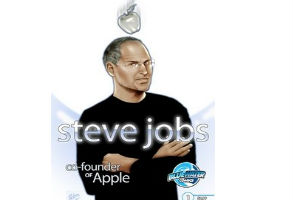
The life of Apple visionary Steve Jobs will be told in a comic book to be released in August by the studio that did the same with the story of Facebook co-founder Mark Zuckerberg.
"His story, and that of Apple, is epic," Bluewater Productions president Darren Davis said of Jobs.
"His innovations command front page news, speculation of his health affects the stock market," Davis said. "Not bad for a college dropout."
The 32-page comic book will be available in real-world bookstores and at online shops such as Amazon.com, Barnes & Noble and Borders at a price of $3.99, according to a release issued Monday by Bluewater.
Impetus to publish "Steve Jobs: Co-founder of Apple" came from the success of Bluewater's comic book biography of Zuckerberg, the publisher said.
The Zuckerberg comic sold-out and Bluewater is to release a graphic novel version of the Facebook co-founder's story in September at a price of $10.99.
"There are definitely some similarities between Zuckerberg and Jobs," said Bluewater writer C.W. Cooke.
"The idea behind both efforts is to show the person behind the personality and that it is never what you'd expect," the writer said.
A biography of Jobs title "iSteve: The Book of Jobs" written by former Time magazine managing editor Walter Isaacson is to be released as a book next year and has logged strong pre-orders at Amazon.
The book, the first authorized biography of the technology visionary behind the Macintosh computer, the iPod, the iPhone and iPad, is to be released on March 6, 2012.
After the iPhone 4 'antenna gate' Apple is facing another problem with its latest product the iPad 2. It is recalling some of the iPad 2 units sold on the Verizon CDMA network in the US as duplicate MEID (Mobile equipment identifier) codes were flashed onto an extremely small number of iPads.
Mobile Equipment Identifier codes are enabled on all tablets, which acts like a serial number for accessing a wireless network service. The code is always sent out to the carrier, which after verification authorizes the tablet to go online. The problem is that no two devices can have the same MEID.
This problem prevents the iPad from connecting to Verizon's 3G networks. Apple is replacing the affected units that were already sold with new ones. In-spite of this problem iPad owners should not be worried as this a is minor issue that affects very few units exclusive to the Verizon network in the United States.
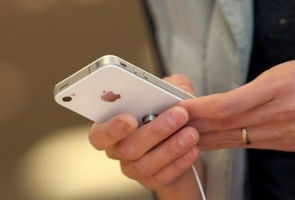 Apple, in a move hailed by a group of US senators, has agreed not to allow any new iPhone applications in the App Store that identify police drunk-driving checkpoints.
Apple, in a move hailed by a group of US senators, has agreed not to allow any new iPhone applications in the App Store that identify police drunk-driving checkpoints.
Senators Harry Reid, Charles Schumer, Frank Lautenberg and Tom Udall urged Apple, Blackberry maker Research In Motion and Google in March to ban smartphone applications that could help intoxicated drivers avoid police.
The Canada-based RIM immediately complied but Apple and Google initially refused.
Apple, however, changed its App Store guidelines this week to ban future applications that contain information on drunk-driving checkpoints not published by the police.
The senators praised the move but expressed disappointment that the California gadget-maker had declined to remove existing applications from the App Store.
"I commend Apple Inc for taking this important first step towards making our roads and neighborhoods safer from drunk drivers," Reid said. "However, I strongly encourage Apple to take the next responsible step of removing all applications that allow unsafe drivers to evade police checkpoints."
One popular smartphone program, PhantomAlert, asks potential customers on its website: "Tired of traffic tickets? The embarrassment, the time, the points, the frustration, the money?"
"You will be alerted as you approach: Railroad Crossings, Dangerous Intersections, Dangerous Curves, Speed Bumps, Speed Traps, Speed Cameras, Red Light Cameras, School Zones, DUI Checkpoints."
DUI means "driving under the influence," or intoxicated.











